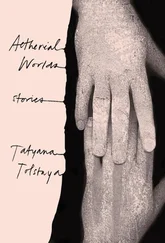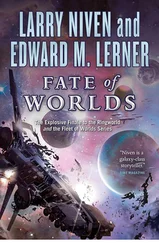Harry Williams - Worlds That Weren't
Здесь есть возможность читать онлайн «Harry Williams - Worlds That Weren't» весь текст электронной книги совершенно бесплатно (целиком полную версию без сокращений). В некоторых случаях можно слушать аудио, скачать через торрент в формате fb2 и присутствует краткое содержание. Город: New York, Год выпуска: 2002, ISBN: 2002, Издательство: Roc Hardcover, Жанр: Альтернативная история, на английском языке. Описание произведения, (предисловие) а так же отзывы посетителей доступны на портале библиотеки ЛибКат.
- Название:Worlds That Weren't
- Автор:
- Издательство:Roc Hardcover
- Жанр:
- Год:2002
- Город:New York
- ISBN:978-0451458865
- Рейтинг книги:5 / 5. Голосов: 1
-
Избранное:Добавить в избранное
- Отзывы:
-
Ваша оценка:
- 100
- 1
- 2
- 3
- 4
- 5
Worlds That Weren't: краткое содержание, описание и аннотация
Предлагаем к чтению аннотацию, описание, краткое содержание или предисловие (зависит от того, что написал сам автор книги «Worlds That Weren't»). Если вы не нашли необходимую информацию о книге — напишите в комментариях, мы постараемся отыскать её.
Worlds That Weren't — читать онлайн бесплатно полную книгу (весь текст) целиком
Ниже представлен текст книги, разбитый по страницам. Система сохранения места последней прочитанной страницы, позволяет с удобством читать онлайн бесплатно книгу «Worlds That Weren't», без необходимости каждый раз заново искать на чём Вы остановились. Поставьте закладку, и сможете в любой момент перейти на страницу, на которой закончили чтение.
Интервал:
Закладка:
“Why, no others-only rowers and marines and officers,” Alkibiades answered with a laugh. “We can, if you like, sleep under one blanket, as we did up in the north.” He batted his eyes with an alluring smile.
Most Athenians would have sailed with him forever after an offer like that. Sokrates might not even have heard it. “And how many hoplites will be aboard the other triremes of the fleet?” he inquired.
“None I know of,” Alkibiades said.
“Then does it not seem to you, O marvelous one, that the proper place for rowers and marines is aboard the triremes, while the proper place for hoplites is aboard the transports?” Having solved the problem to his own satisfaction, Sokrates walked on toward the transports. Alkibiades stared after him. After a moment, he shook his head and laughed again.
Once the Athenians sneaked a few soldiers into Katane by breaking down a poorly built gate, the handful of men in it who supported Syracuse panicked and fled south toward the city they favored. That amused Alkibiades, for he hadn’t got enough men into the Sicilian polis to seize it in the face of a determined resistance. Boldness, he thought again. Always boldness. With the pro-Syracusans gone, Katane promptly opened its gates to the Athenian expeditionary force.
The polis lay about two thirds of the way down from Messane at the northern corner of Sicily to Syracuse. Mount Aetna dominated the northwestern horizon, a great cone shouldering its way up into the sky. Even with spring well along, snow still clung to the upper slopes of the volcano. Here and there, smoke issued from vents in the flanks and at the top. Every so often, lava would gush from them. When it flowed in the wrong direction, it destroyed the Katanians’ fields and olive groves and vineyards. If it flowed in exactly the wrong direction, it would destroy their town.
Alkibiades felt like the volcano himself after another fight with Nikias. The Athenians had sent Nikias along with the expedition to serve as an anchor for Alkibiades. He knew it, knew it and hated it. He didn’t particularly hate Nikias himself; he just found him laughable, to say nothing of irrelevant. Nikias was twenty years older than he, and those twenty years might just as well have been a thousand.
Nikias dithered and worried and fretted. Alkibiades thrust home. Nikias gave reverence to the gods with obsessive piety, and did nothing without checking the omens first. Alkibiades laughed at the gods when he didn’t ignore them. Nikias had opposed this expedition to Sicily. It had been Alkibiades’ idea.
“We were lucky ever to take this place,” Nikias had grumbled. He kept fooling with his beard, as if he had lice. For all Alkibiades knew, he did.
“Yes, my dear,” Alkibiades had said with such patience as he could muster. “Luck favors us. We should-we had better-take advantage of it. Ask Lamakhos. He’ll tell you the same.” Lamakhos was the other leading officer in the force. Alkibiades didn’t despise him. He wasn’t worth despising. He was just… dull.
“I don’t care what Lamakhos thinks,” Nikias had said testily. “I think we ought to thank the gods we’ve come this far safely. We ought to thank them, and then go home.”
“And make Athens the laughingstock of Hellas?” And make me the laughingstock of Hellas? “Not likely!”
“We cannot do what we came to Sicily to do,” Nikias had insisted.
“You were the one who told the Assembly we needed such a great force. Now we have it, and you still aren’t happy with it?”
“I never dreamt they would be mad enough actually to send so much.”
Alkibiades hadn’t hit him then. He might have, but he’d been interrupted. A commotion outside made both men hurry out of Alkibiades’ tent. “What is it?” Alkibiades called to a man running his way. “Is the Syracusan fleet coming up to fight us?” It had stayed in the harbor when an Athenian reconnaissance squadron sailed south a couple of weeks before. Maybe the Syracusans hoped to catch the Athenian triremes beached and burn or wreck them. If they did, they would get a nasty surprise.
But the Athenian tossed his head. “It’s not the polluted Syracusans,” he answered. “It’s the Salaminia. She’s just come into the harbor here.”
“The Salaminia?” Alkibiades and Nikias spoke together, and in identical astonishment. The Salaminia was Athens’ official state trireme, and wouldn’t venture far from home except on most important business. Sure enough, peering toward the harbor, Alkibiades could see her crew dragging her out of the sea and up onto the yellow sand of the beach. “What’s she doing here?” he asked.
Nikias eyed him with an expression compounded of equal parts loathing and gloating. “I’ll bet I know,” the older man said. “I’ll bet they found someone who told the citizens of Athens the real story, the true story, of how the herms all through the polis were profaned.”
“I had nothing to do with that,” Alkibiades said. He’d said the same thing ever since the mutilations happened. “And besides,” he added, “just about as many of the citizens of Athens are here in Sicily as are back at the polis.”
“You can’t evade like that,” Nikias said. “You remind me of your dear teacher Sokrates, using bad logic to beat down good.”
Alkibiades stared at him as if he’d found him squashed on the sole of his sandal. “What you say about Sokrates would be a lie even if you’d thought of it yourself. But it comes from Aristophanes’ Clouds, and you croak it out like a raven trained to speak but without the wit to understand its words.”
Nikias’ cheeks flamed red as hot iron beaten on the anvil. Alkibiades would have liked to beat him. Instead, he contemptuously turned his back. But that pointed his gaze toward the Salaminia again. Athenians down there on the shore were pointing up to the high ground on which he stood. A pair of men whose gold wreaths declared they were on official business made their way toward him.
He hurried to meet them. That was always his style. He wanted to make things happen, not have them happen to him. Nikias followed. “Hail, friends!” Alkibiades called, tasting the lie. “Are you looking for me? I am here.”
“Alkibiades son of Kleinias?” one of the newcomers asked formally.
“You know who I am, Herakleides,” Alkibiades said. “What do you want?”
“I think, son of Kleinias, that you know what I want,” Herakleides replied. “You are ordered by the people of Athens to return to the polis to defend yourself against serious charges that have been raised against you.”
More and more hoplites and rowers gathered around Alkibiades and the men newly come from Athens. This was an armed camp, not a peaceful city; many of them carried spears or wore swords on their hips. Alkibiades smiled to see them, for he knew they were well inclined toward him. In a loud voice, he asked, “Am I under arrest?”
Herakleides and his wreathed comrade licked their lips. The mere word made soldiers growl and heft their spears; several of them drew their swords. Gathering himself, Herakleides answered, “No, you are not under arrest. But you are summoned to defend yourself, as I said. How can a man with such charges hanging over his head hope to hold an important position of public trust?”
“Yes-how indeed?” Nikias murmured.
Again, Alkibiades gave him a look full of withering scorn. Then he forgot about him. Herakleides and his friend were more important at the moment. So were the soldiers and sailors-much more important. With a smile and a mocking bow, Alkibiades said, “How can any man hope to hold an important position of public trust when a lying fool can trump up such charges and hang them over his head?”
“That’s the truth,” a hoplite growled, right in Herakleides’ ear. He was a big, burly fellow with a thick black beard-a man built like a wrestler or a pankratiast. Alkibiades wouldn’t have wanted a man like that growling in his ear and clenching a spearshaft till his knuckles whitened.
Читать дальшеИнтервал:
Закладка:
Похожие книги на «Worlds That Weren't»
Представляем Вашему вниманию похожие книги на «Worlds That Weren't» списком для выбора. Мы отобрали схожую по названию и смыслу литературу в надежде предоставить читателям больше вариантов отыскать новые, интересные, ещё непрочитанные произведения.
Обсуждение, отзывы о книге «Worlds That Weren't» и просто собственные мнения читателей. Оставьте ваши комментарии, напишите, что Вы думаете о произведении, его смысле или главных героях. Укажите что конкретно понравилось, а что нет, и почему Вы так считаете.












